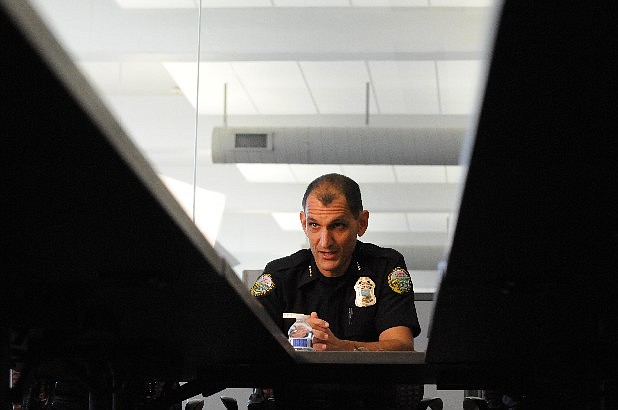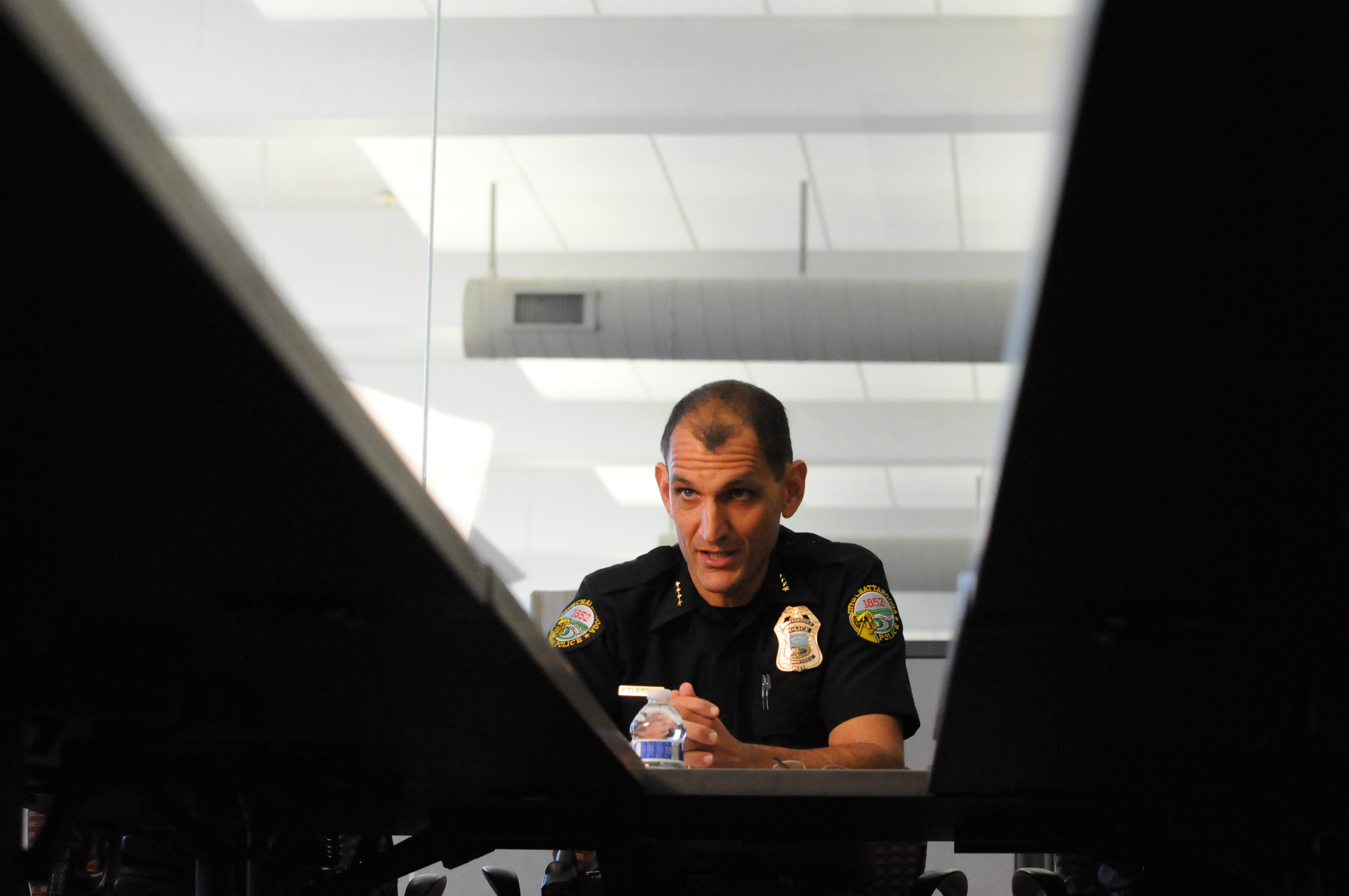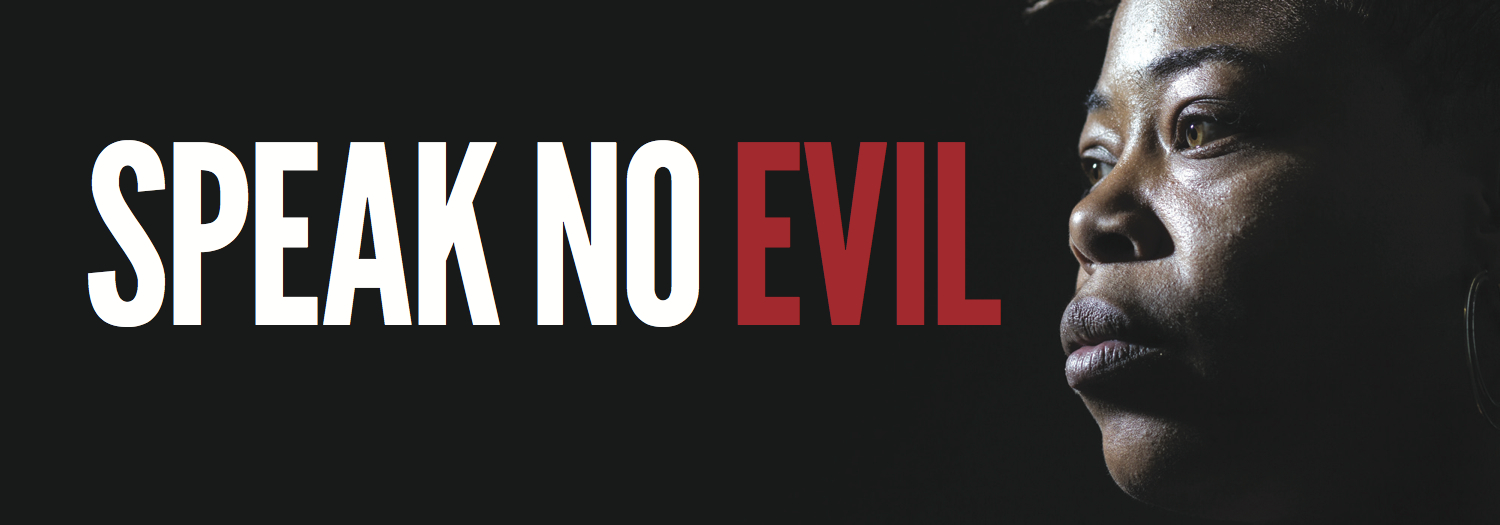ONLINE:See our special report on the code at timesfreepress.com/speaknoevil
Chattanooga police are hoping that community members can do what police can't.
The department is launching a new program to encourage victims and witnesses of violent crime to talk with police during investigations.
Police investigations have been plagued by a "snitches-get-stitches" street code that often keeps victims or witnesses silent -- they may know who committed the crime, but still refuse to tell police, either because they're afraid of retaliation or because they're tied up in illegal activities themselves.
To combat this code, police are partnering with about 70 community members -- like pastors, neighborhood associations and court employees -- to apply what Chief Fred Fletcher calls "positive peer pressure" to reluctant witnesses.
The plan is for these community members to accompany police to interviews with witnesses and victims as investigations unfold and let the victim know that the community expects them to cooperate and will support them.
"We're going to show up with a community member who is of that community, who knows these folks, who is trusted by these folks, and we're going to try to flip that code of silence into a community code of protecting your neighbors and your neighborhood," Fletcher said during an editorial board meeting with the Times Free Press.
Assistant Chief Tracy Arnold said the initial meeting with community members went well. One avenue for gathering information could be the family and friends of victims, he added.
"The son may know who shot him but doesn't want to share it with police. But he may share it with his mom. So we can approach the mom, 'Mom, do you know who it is?'" he said. "'All we want to know is which direction we need to know to build this case and find out who shot your son.'"
The hope is that eventually, the attitude of cooperation will extend beyond the 70 people involved in the program to the whole community.
But not all community members are convinced the program is a good idea. Lincoln Park neighborhood association leader Tiffany Rankins said she doesn't agree with pressuring reluctant witnesses into giving information to police -- no matter how it's done.
"I wouldn't pressure anyone to do anything they don't feel comfortable with," she said. "Because they have to live with that decision. The police are not always around."
She added that her community group has been asking victims to call the police for years, but many hesitate even to make an anonymous call. So the program faces a tough battle, she said.
"At our community meetings, we've been telling these people to call the police, that they won't report your name and so on, and they won't even do that," she said. "They won't even get to that point."
But Fletcher said police are committed to the effort, and that the end goal -- more violent offenders behind bars -- will benefit everyone in Chattanooga.
"We're trying to find the people who are hurting our community members and hold them accountable," he said.
Contact staff writer Shelly Bradbury at 423-757-6525 or sbradbury@timesfreepress.com with tips or story ideas.


